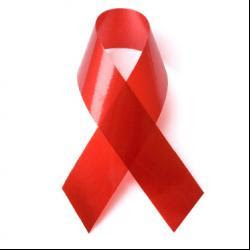
Although male circumcision has been shown to effectively protect against HIV infection for men who have sex with women, there appears to be little effectiveness in protecting men who have sex with men.
Circumcision is the surgical removal of a flap of skin from the tip of a man's penis. It is believed to reduce the risk of HIV transmission since the inner surface of the foreskin contains cells that are more susceptible to HIV infection than cells located on other parts of the penis. In addition, circumcision reduces the risk of developing genital ulcers that occur from diseases such as syphilis, which also lowers susceptibility to HIV during intercourse.
In 2007, studies of heterosexual men in Kenya, South Africa, and Uganda concluded that circumcision effectively reduces female-to-male transmission rates by 48 to 60 percent. However, according to a new combined analysis of several studies, circumcision reduces the risk of acquiring HIV by only 14 percent among men who have sex with men. The study was recently published in the Journal of the American Medical Association (JAMA).
The wide-ranging analysis included data from 15 studies in eight countries, including the United States, involving 53,567 gay and bisexual men. The men were predominantly Caucasian with about half of them having been circumcised. The finding that a man’s HIV risk was only reduced by 14 percent was statistically insignificant, but should be considered a launching point for future studies, according to the authors.
Gregorio Millett, the study's lead author and a senior behavioral scientist at the Centers for Disease Control and Prevention (CDC), said, “Over all, we’re not finding a protective effect associated with circumcision for gay and bisexual men.” However, he did note that, “This study gives us a more complete picture than we've ever had before,” and said, “The next step is to design better quality studies to see if there is an association we aren't detecting.”
The analysis also suggested that circumcision lowered the HIV infection risk by 29 percent among men who practice only insertive sex with other men, which is also statistically insignificant. Millett says that a good question to be answered in future studies would be whether circumcision can reduce infection rates among the subset of men who have only insertive sex with other men, as opposed to those who practice only receptive sex or both. The answer could be helpful in learning the specific effect of circumcision.

0 comments:
Post a Comment